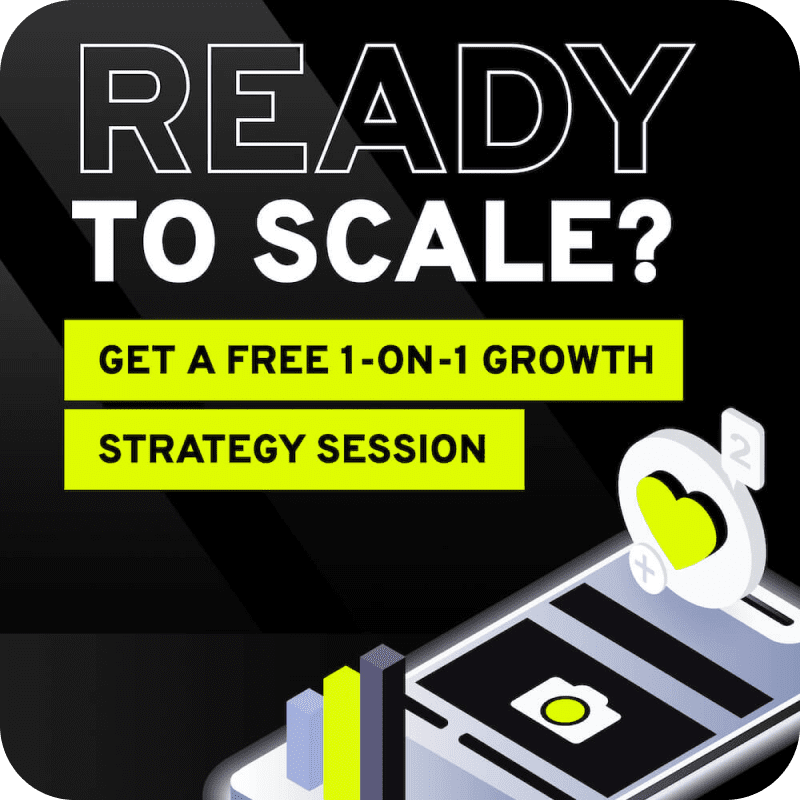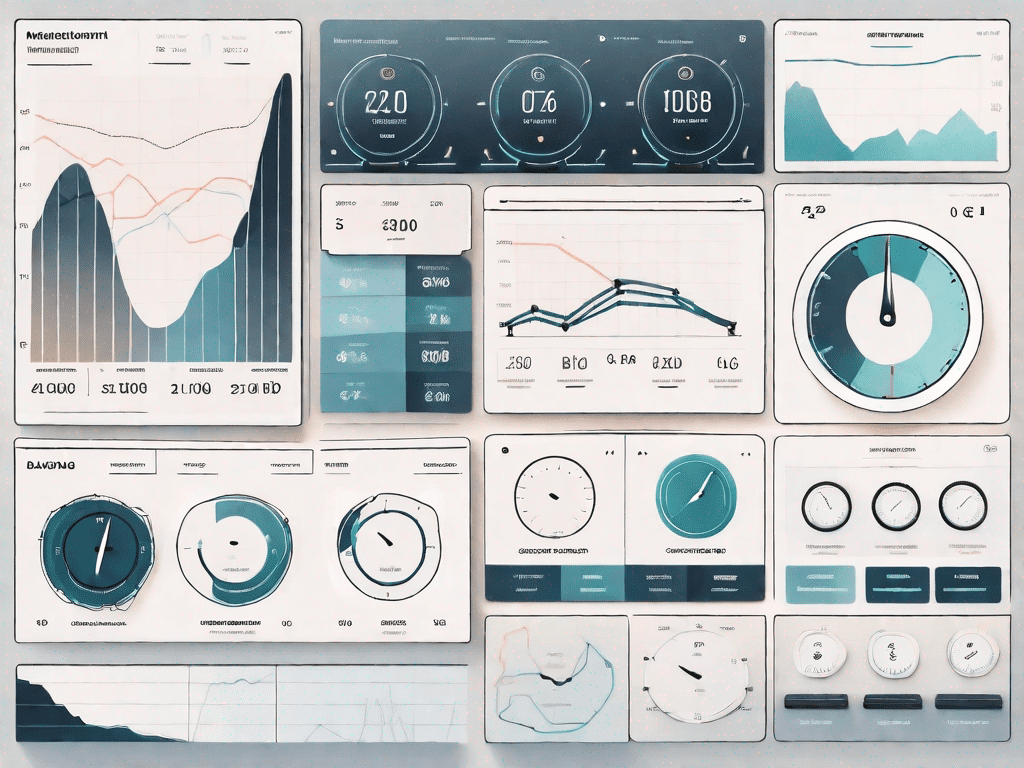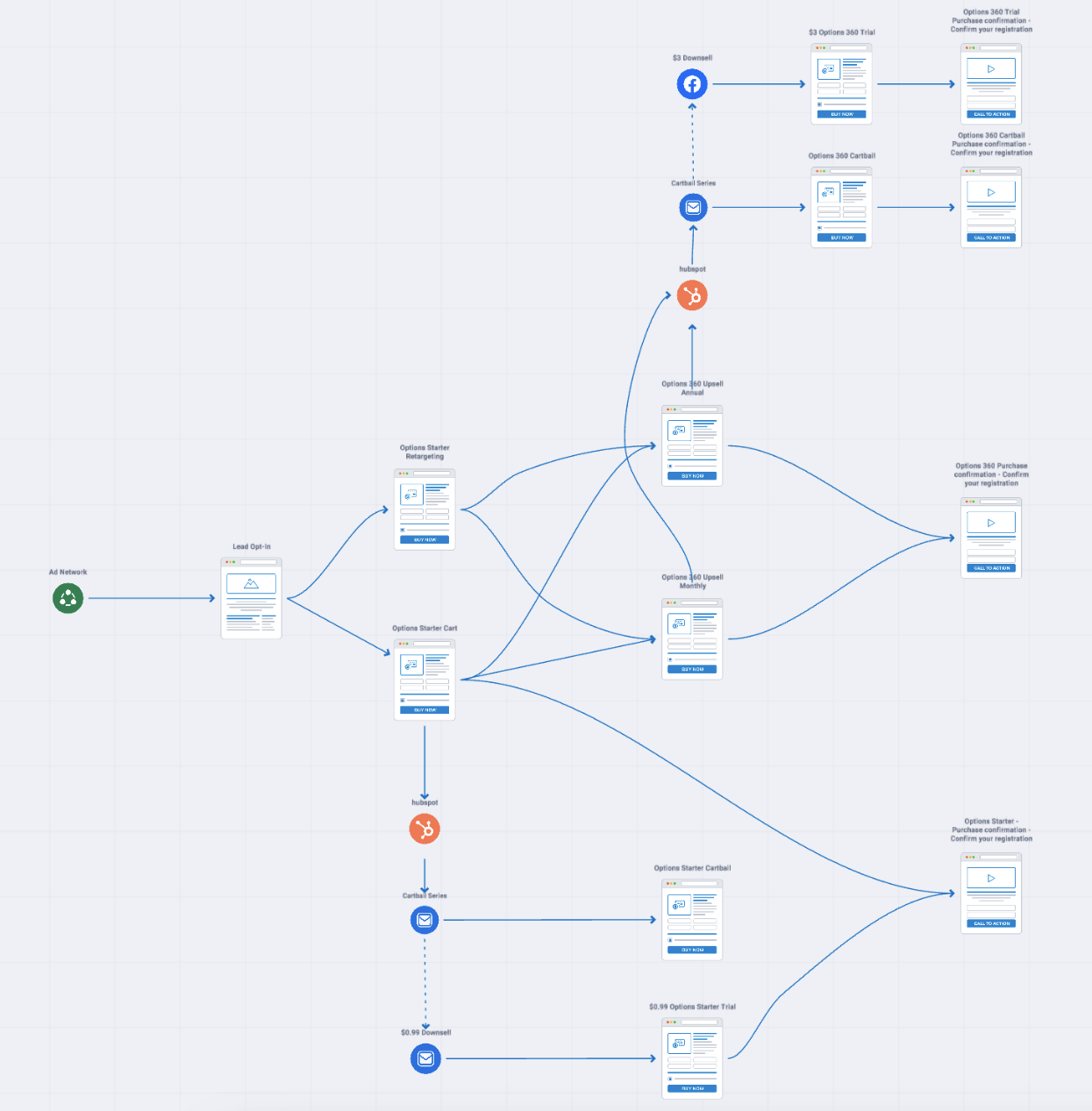Every business knows that marketing is critical if you’re looking to grow and expand your customer base. The most successful and profitable businesses employ a smart marketing strategy that includes using marketing funnels. A marketing funnel helps businesses build closer relationships with their audience and guide prospects towards becoming loyal customers through a series of clearly defined stages. In this article, we’ll dive into what a marketing funnel is and why it’s important for businesses to use. We’ll also explore the key stages of a marketing funnel, how to measure success, and the essential metrics to focus on.
The Importance of Marketing Funnels
Marketing funnels have become a crucial part of digital marketing strategies in recent years because they are proven to be effective. They help businesses build brand awareness, strengthen customer relationships, and increase conversions. A well-crafted marketing funnel takes prospects through a journey that addresses their needs and converts them into loyal customers. By breaking down the funnel process into stages, businesses can fine-tune their marketing strategies and get the best results by tweaking variables at each stage.
What is a Marketing Funnel?
A marketing funnel, also known as a sales funnel, refers to the different stages a buyer goes through before making a purchase. The funnel visually represents the process of turning prospects into paying customers. Generally, there are several phases of a marketing funnel that include the awareness stage, interest stage, consideration stage, conversion stage, retention stage, and advocacy stage.
At the awareness stage, potential customers become aware of your brand and the products or services you offer. This is where you make a first impression and begin to establish trust with your audience. The interest stage is where potential customers start to learn more about your brand and what you have to offer. This is where you provide valuable information and content that educates and engages your audience.
The consideration stage is where potential customers start to evaluate your brand and compare it to your competitors. This is where you need to differentiate yourself and provide unique value propositions that set you apart from the competition. The conversion stage is where potential customers make the decision to purchase from your brand. This is where you need to provide a seamless and easy buying experience that makes it simple for customers to take action.
The retention stage is where you focus on keeping your customers engaged and satisfied with your brand. This is where you provide exceptional customer service, ongoing support, and personalized experiences that keep customers coming back for more. Finally, the advocacy stage is where your loyal customers become your brand advocates and help spread the word about your brand to their network.
Why Marketing Funnels are Essential for Business Growth
Marketing funnels are essential because they help businesses better understand their prospects’ needs, behaviors, and preferences. This deeper understanding allows businesses to make better decisions when creating marketing strategies that address their ideal buyer’s pain points and desires. By guiding customers through a funnel, businesses can build credibility and trust, which ultimately leads to increased conversions and sales. The key is to create a well-optimized marketing funnel that is constantly being refined based on metrics.
Another reason why marketing funnels are essential for business growth is that they allow businesses to track and measure their marketing efforts. By analyzing the data and metrics at each stage of the funnel, businesses can identify areas of improvement and make data-driven decisions that improve their overall marketing strategy. Marketing funnels also help businesses stay focused on their goals and priorities, which is essential for long-term success.
In conclusion, marketing funnels are a crucial part of any digital marketing strategy. By understanding the different stages of the funnel and creating a well-optimized funnel that addresses the needs and desires of your ideal buyer, you can build brand awareness, strengthen customer relationships, and increase conversions. Remember to constantly refine and optimize your funnel based on metrics to ensure the best results for your business.
Key Stages of a Marketing Funnel
Marketing funnels are comprised of several stages, each of which serves a specific purpose in the journey from prospect to loyal customer. The key stages include:
Awareness Stage
The awareness stage is when prospects learn about the existence of your brand. This is when businesses need to grab the attention of their prospective buyers and start building interest. At this stage, focus on creating content that answers the questions potential buyers have about your brand and why they need it. For example, you can create engaging blog posts, social media posts, or videos that highlight your brand’s unique value proposition.
Interest Stage
During the interest stage, your prospective customers will start to develop an interest in your product or service. This is when businesses need to provide prospects with more detailed information about how their product or service can help solve their pain points and satisfy their needs. Some effective ways to create interest include sharing customer testimonials, offering product demos, or providing comprehensive product or service guides on your website.
Consideration Stage
In the consideration stage, prospective customers are actively comparing and evaluating your brand against other alternatives. This stage is critical in determining whether or not a potential customer becomes a paying customer. To win over prospects, businesses must create compelling content that convinces them that their brand is the best solution. Some of the most effective content strategies for the consideration stage include detailed case studies, comparison charts, and in-depth product demos.
Conversion Stage
The conversion stage is when your brand turns a prospect into a paying customer. This is where businesses must make it easy and compelling for prospects to purchase their product or service. They can achieve this by designing a straightforward, user-friendly checkout process that removes barriers and makes it easy for customers to make a purchase. Offering incentives like discounts, free shipping and alluring “buy now” buttons can also help prospects make the final decision.
Retention Stage
The retention stage follows the conversion stage and focuses on keeping customers engaged and satisfied with the products or services they have purchased. By offering excellent customer service, personalized communication, and follow-ups, businesses can keep customers coming back for more. Businesses can also adopt email marketing campaigns designed for customers to promote new product launches, discounts, or special events.
Advocacy Stage
The advocacy stage is the final stage of the funnel process. It is when satisfied customers become loyal brand advocates who promote and endorse your brand to others in their network. By delighting customers with excellent customer service, creating meaningful content, and leveraging social proof tactics like endorsements and social sharing, businesses can turn customers into powerful brand advocates and drive continued growth for their brand.
Essential Metrics to Measure Marketing Funnel Success
To ensure that your marketing funnel is effective, you need to track and analyze metrics. Metrics provide valuable insights into how effective your marketing funnel is and help identify areas that require optimization. There are many marketing funnel metrics to track, but the essential ones include:
Traffic Metrics
Traffic metrics measure the volume, source, and behavior of the visitors coming to your website. It includes page views, sessions, and unique visitors as well as metrics like referral sources, bounce rates, and exit rates. By analyzing these metrics, businesses can identify the most effective marketing channels, keywords, and tactics for driving traffic to their website.
Conversion Rate Metrics
Conversion rate metrics measure the percentage of visitors who perform a desired action on your website. These actions include sign-ups, downloads, and purchases. By analyzing conversion rate metrics, businesses can optimize their conversion funnels and identify what changes or tactics lead to increased conversions.
Engagement Metrics
Engagement metrics measure the level of engagement that visitors have with your website content. It includes metrics like time on page, pages per session, and scroll depth. By analyzing engagement metrics, businesses can determine which pages are most popular and what content resonates with their audience.
Revenue Metrics
Revenue metrics measure the actual revenue generated by your marketing funnel. This includes metrics like customer lifetime value, average order value, and revenue per visitor. By analyzing these metrics, businesses can determine which marketing tactics, channels, and campaigns are most effective at driving sales and revenue.
Customer Retention Metrics
Customer retention metrics measure the effectiveness of your retention funnel. This includes metrics like customer churn rate, repeat purchase rate, and retention rate. By analyzing these metrics, businesses can optimize their retention funnel and identify opportunities to keep customers engaged and satisfied.
Conclusion
Marketing funnels are an essential component of any successful digital marketing campaign. By guiding prospects through a series of stages, businesses can build closer relationships with their customers, increase loyalty, and drive continued business growth. To optimize your marketing funnel, it’s critical to measure and analyze your metrics. By tracking the essential metrics, including traffic, conversion rates, engagement, revenue, and customer retention, businesses can continuously refine their funnel and achieve greater success.



